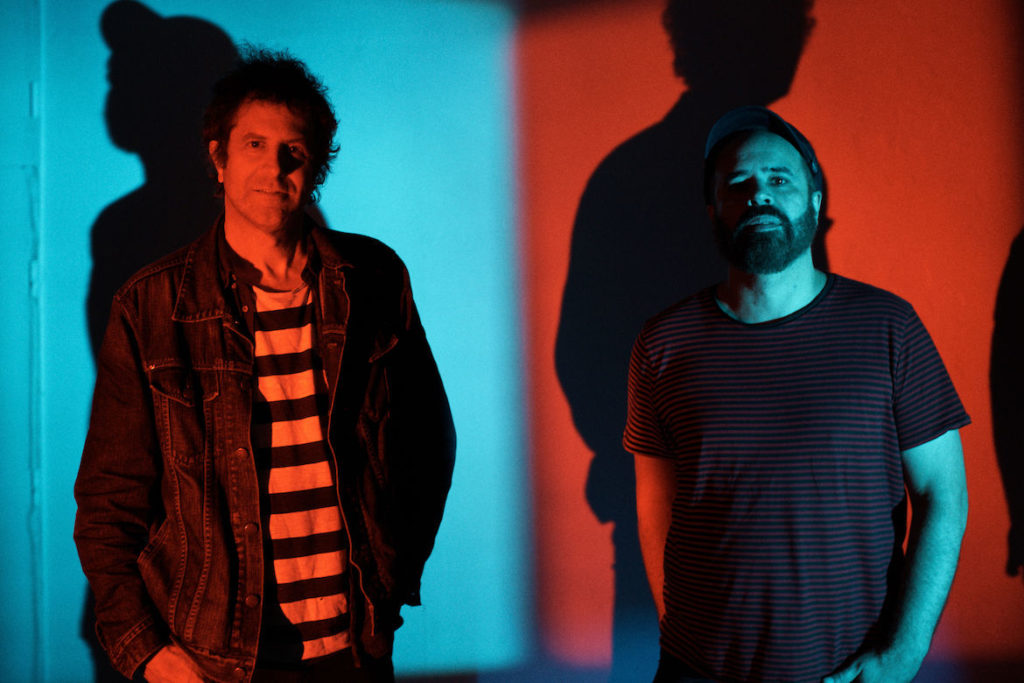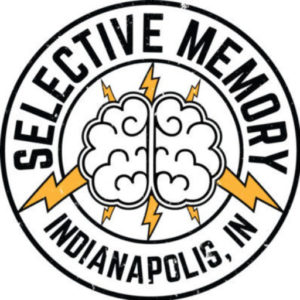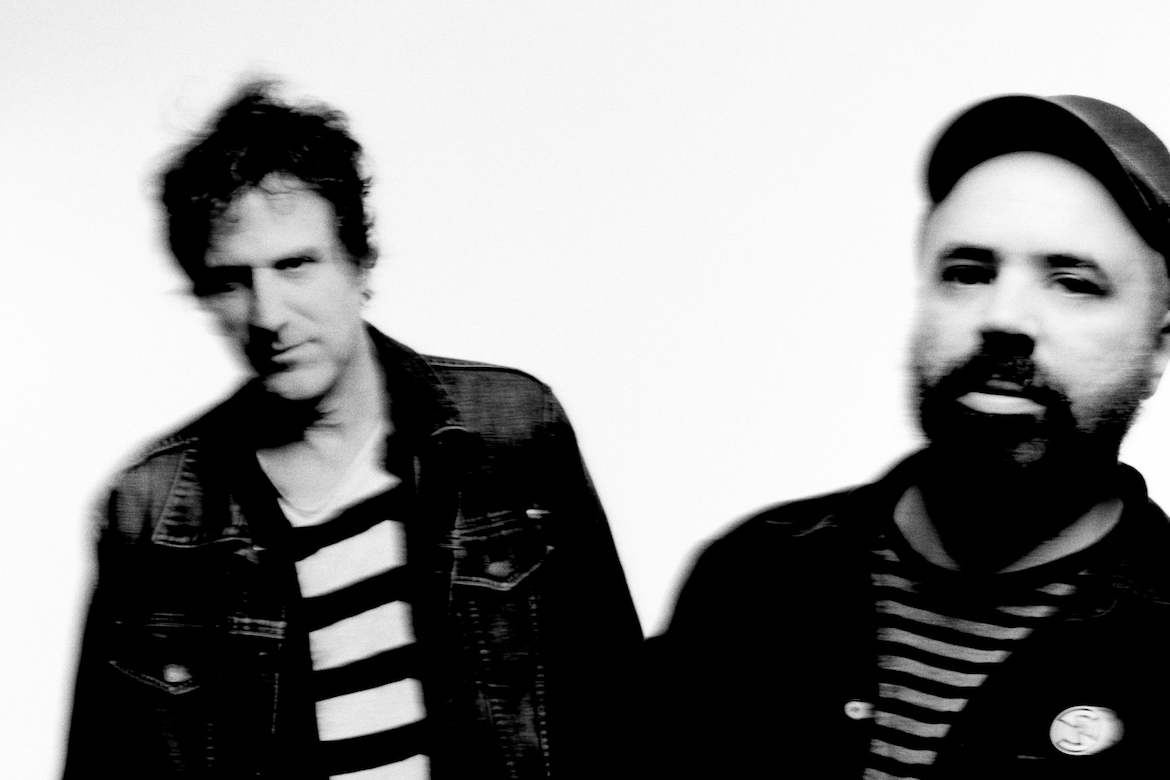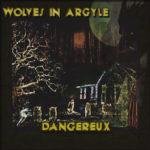Swervedriver returns with new album and tour
It’s like nothing ever happened. 10 years went by and Swervedriver still existed throughout the 21st Century, embedded within the consciousness of indie rockers sparking what-if fascinations, softly fading year after year. Will they get back together? What will it sound like? Memories of their sonic resume with Raise and Mezcal Head, amongst other albums, fueled space age sounds that reverberated through our ‘90s alternative consciousness.
And then it happened. The band reformed to release I Wasn’t Born To Lose You in 2015. The album springboarded the band back into popularity amongst guitar noise heavy enthusiasts. Suddenly, the band became heroes, surviving the storm.
Now that the re-honeymoon is over, Swervedriver returns with Future Ruins, an impressive collection of space-travel rock aural paintings that pin reality into a futurist escapism. Lyrically patterned to sound like DAW science fiction prose, Adam Franklin has penned some of his best work yet. “We’re all so alone/And we all have to live as one/And we all must exist as one/And we all must resist as one,” he sings on “Radio-Silent.” Major Tom would agree.
I spoke with Franklin about the band’s history, their re-unification and work on Future Ruins. They will be on tour in March and April 2019 with Failure. Scroll to the end of the article for dates.

What was the musical and social culture of Oxford like that influenced you to develop the interstellar sonic philosophy that is at the core of Swervedriver’s sound?
I think we felt a bit removed from everything that was going on around us actually. It was that barren time after Live Aid when punk finally died. Up until then pop bands such as the Human League or Soft Cell or whoever had clearly sprung from the punk ethos but now it was just horribly safe and transparently plastic music in the charts and people went further underground investigating 60s psychedelic rock and the Stooges and all that. There didn’t seem to be many bands around following that same trend until a couple of years later when we found them or they found us.
Looking back at Raise, it’s impressive that “Son of Mustang Ford” was one of the early songs written as a band as exciting, raw and unforgiving as it was. What did early songs like these mean to you?
I think there was a new energy. By this time Sonic Youth, Dinosaur Jr and My Bloody Valentine had come along and we had played shows with some of them and ‘Son of Mustang Ford’ reflected those bands musically as well as a kind of wanderlust lyrically.
Swervedriver – Son of Mustang Ford
One thing that can be appreciated with Swervedriver is the consistency in structure. From the beginning, the band built an identity that stays strong today. What became the blueprint for your style of songwriting to form that identity?
I’m not sure but I think you’re right, that unlike some other bands, our sort of core personality came across right from the get go. In some ways I think we now do kind of know how to write a Swervedriver song and it’s fun to do but at the same time I don’t think it’s good to rest on your laurels and you should always be pushing the borders of what you can or cannot do.
By the time of Mezcal Head, Alan Moulder is credited with helping to open up your sound and became a part of the recording process for three albums. What did you take from those experiences and utilize today. Do you feel like you achieved your vision of what Swervedriver in your mind was like in the 1990s? Would you change anything?
There are probably some things you might change but I wouldn’t want to because everything was of its time. What Alan Moulder brought was this amazing sense of frequencies and where everything should sit in the mix. You might record a song that has six guitar parts on it and he found a way to alter the EQ and pan sounds around the stereo mix so that all these disparate parts had a place and were easy for the listener to compartmentalize. Everyone learnt a lot from Alan I think and he’s a lovely bloke too – we text about the football all the time.
Swervedriver – Duel
During the wave of ‘90s Britpop and the existentialist shoegaze period, how did you fit in or not fit in. Did it matter? Where do you feel was your place in the British musical landscape?
In the early 90s in the UK there was a lot of different indie music going on and we would play shows with everyone from My Bloody Valentine or Silverfish to Ned’s Atomic Dustbin to opening shows for American bands like Jane’s Addiction or more established bands such as Killing Joke. I suppose things settled down and we were loosely associated with what became known as Shoegaze in the UK but at the same time in the US we were playing shows with more Grunge-type acts like Soundgarden or Smashing Pumpkins. So no, it didn’t really matter until we got dropped by our US label A&M because they couldn’t afford to advance us what they were contractually obliged to because we weren’t shifting enough units! And then as you say Britpop arrived in the UK and we were somewhat out of step with that scene in London musically even though we were quite friendly with a lot of the Britpop acts. The musicians themselves transcended all the supposed boundaries of genre definitions because we were all just basically doing the same thing.
What did you find personally more frustrating, the label issues at the end of the ‘90s or the hiatus of the band? How did that effect you as a musician at the time and what did you do to keep moving forward as you transitioned to having a creative solo career?
The hiatus was our own decision because we had become disenchanted, probably as a result of all the label things but that was nothing new. Far better bands than us got treated more shittily, I’m sure. For me personally I happened to meet an American girl at the turn of the century and moved to New York around the time Swervedriver stopped playing shows and just got into a different scene which was a breath of fresh air.
What do you feel were some of your greatest achievements during the 2000s and how did the variety of projects improve your psyche and inspiration as an artist?
Greatest achievements? Well, we did some more electronic music as Toshack Highway and then I did the Magnetic Morning project with Sam Fogarino from Interpol as well as solo and Bolts of Melody albums. It was all great fun and actually I think it mostly all holds up when you listen to it today. I love ‘Cold War Kids’ by Magnetic Morning, ‘Harlem’ by Toshack Highway and ‘Mary Gunn’ by Adam Franklin & Bolts of Melody for example. We still need to get Magnetic Morning and Toshack Highway on Spotify, mind you.
Tell me about what happened when Swervedriver got back together? What were those sessions like? What was it like jumping back into that mindset?
It was like the proverbial riding a bike again, yes! We deliberately chose some run-down rehearsal studio in Tottenham, North London for our first get-together and we didn’t have the full array of pedals etc and had a kind of shitty PA and someone called out which song to start with, we counted in and we all found ourselves pulling the same moves like muscle memory.
How did I Wasn’t Born To Lose You come about? Was recording an album with this band different or did that identity hold? That much time away, how did everyone come into the album with this expanded musical knowledge?
Well, myself and Jimmy Hartridge and Steve Georg sent ideas back and forth until we could feel a set of songs coming together. There was I suppose a certain amount of thought put into how the songs held together as a collection and at one point we kind of said to each other ‘we need a Duel-type song’ but at the same time we didn’t attempt to write a ‘Duel’-type song because I think second-guessing yourself and trying to write a re-tread is a cul-de-sac. We just made each other aware of how we felt things should be in an ideal world. In the end I think the ‘Duel’-type song did emerge but anyway we were on a different path. We were certainly aware that we were making a Swervedriver album though and we wanted to expand that idea as well as delve into other areas.
Swervedriver – Autodidact
What do you think made the difference between I Wasn’t Born to Lose You and Future Ruins?
The major difference is probably that with IWBTLY we decided upon ten songs and then we rehearsed them to death in another shitty North London rehearsal studio before going into The Kinks’ recording studio and laying them down whereas with Future Ruins we spent a couple of weeks fucking around with ideas in an LA studio and we ended up coming out with thirty different recordings which we then edited and culled down to an album.
Future Ruins continues the idea of space and travel, a theme that has stayed with you since the beginning. What attracts you and the band to these ideals and what influences you to continue to explore them?
Ha! Good question. The space thing probably comes from the era we were born into where man was first travelling into space and landing on the moon and there were lots of kids TV shows and music in the pop charts that reflected that such as all the Gerry Anderson shows like Captain Scarlet & the Mysterons or UFO and then hit songs like Starman and Rocket Man and Silver Machine and things like that. I honestly think the travel thing just came from this wanderlust of wanting to travel the world a little and the USA is always on the mind of any young UK band.
Swervedriver – Spiked Flower
How do you continue to open up your sound and expand it as in Future Ruins?
You can never really expand it enough quite honestly. There are things I’d like to do that are probably too “out there” or experimental for Swervedriver – things I could never get past Jimmy Hartridge! I probably need to release more material outside of Swervedriver but it’s fun to push things as far as you can within Swervedriver and in fact Jimmy is more than open to new ideas and always has been. On the title track of the new album he ended up playing this synthesiser on his cellphone which sounds fantastic but I was wondering what he was gonna do live. We just played a show in London with the Dandy Warhols and he just said “well I’m gonna play my phone” and he put it through the PA at Brixton Academy and it sounded amazing!
Swervedriver’s songs are also a societal reaction while maintaining a primal element of rock and roll. How was the songwriting in Future Ruins inspired by this premise? What specific struck a chord when writing the songs?
I mean things hit you and you feel the need to write about them whether it’s something inside your head or something you’re watching on the news on a nightly basis that is making you wanna throw up. If there’s a lot of shit going down that just royally pisses you off then that’s what’s on your mind and what ends up being the words. It’s always interesting because you don’t really know where songs are going to end up when you start but there they are at the end – a psychoanalyst’s dream, I expect!
No longer a reunion phase, how is the band moving forward?
Just making new music, y’know. We were never that comfortable being viewed as a reunion band, or worse “a heritage act”! It’s not like you’re dead from the waist down when you reach 30 or 40 or even 50, even though rock’n’roll originally taught us that that might be the case!
What do you have planned for the rest of 2019 and beyond?
Well, we’re looking forward immensely to going out and playing these new songs in 2019 and mixing them up with the older ones. Beyond the music we are considering making a collective run for President or Prime Minister but only if we know we can win.
Swervedriver / Failure – 2019 Tour Dates
- March 13: Dallas, TX – House Of Blues
- March 14: Houston. TX – Warehouse Live
- March 16: New Orleans, LA – Republic
- March 17: Nashville, TN – Basement East
- March 19: Orlando, FL – Plaza Live
- March 20: Atlanta, GA – Masquerade
- March 21: Raleigh, NC – Lincoln Theatre
- March 23: Pittsburgh, PA – Spirit Hall
- March 24: Philadelphia, PA – TLA
- March 25: Virginia Beach, VA – Elevation 27
- March 27: Boston, MA – Paradise Rock Club
- March 28: Washington D.C – 9.30 Club
- March 29: Brooklyn, NY – Warsaw
- April 1: Toronto, ON – PHX
- April 2: Columbus, OH – Newport Music Hall
- April 3: Detroit, MI – Majestic
- April 5: Chicago – House Of Blues
- April 7: Milwaukee, WI – The Rave II
- April 9: Minneapolis, MN – Varsity
- April 11: Lincoln, NE – Bourbon
- April 12: Lawrence, KS – Liberty Hall
- April 14: Denver, CO – Oriental
- April 15: Salt Lake City, UT – Urban Lounge
- April 17: Portland, OR – Crystal Ballroom
- April 19: Seattle, WA – El Corazon
- April 22: Sacramento CA – Ace Of Spades
- April 23: San Francisco, CA – Fillmore
- April 24: Los Angeles, CA – The Fonda




No Comment! Be the first one.